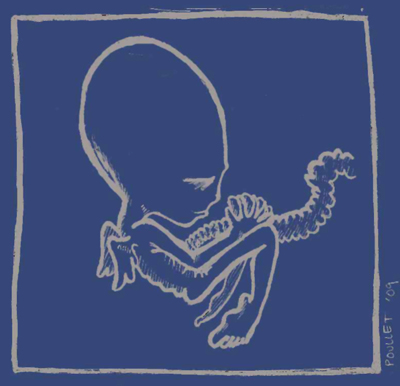Indie Rocker vs. Classic Rocker
Black Sabbath’s Black Sabbath and Sigur Ros’s Agaetis Byrjun
Classic Rocker
I’ll have you know, Kurt, my WWF allegiances pretty much began and ended with Rowdy Roddy Piper. You can keep your Hulk-a-Mania, it never ran wild with me. But a weirdo thyroid case in a kilt, that somehow spoke to my Tex Avery fed sense of the ridiculous. Afterall, Hogan was as much a false Cold Warrior as Reagan, and his jingoistic pile driving of the Iron Sheik always made me kinda cringe. The Macho Man had flair, I admit, I dug that hairy queen, and Andre was always cool whether he was the soft-hearted lumpen Brobdingnagian or the traitorous black-souled monster of his later years. But Rowdy Roddy...have you ever seen They Live? That dude was hardcore.
But I’m off-topic. Sort of. The WWF was certainly comparable to Sabbath in that it allowed the powerless, mostly those same kids that were head-banging their way to a C- average, a fantasy scenario wherein they were in control. A large appeal of the murky lifestyle of the Metalhead was the peception that others, upon seeing their bic tattoos of upside down crosses, identified them as a threat. Guys who dug on Ozzy were dangerous. If they were hero-worshipping a dude who bit the heads off of wriggling varmints then what violent, antisocial activities were they hatching behind the black curtains of their tiny bedrooms?
The truth is most of those guys were only jerking off to shoplifted Playboys, and getting stupid on pilfered High Life. It’s a thing that most people don’t seem to get, or simply choose to forget once they become “Adults”, but being a kid stuck in a crumbling family, trapped in a school system that treats you like a waste of space, surrounded by people with very little vision or ambition, people who actually want to see you fail just so their own failures have some company on the corner...well sometimes you just need to get fucked-up and thrash around to really heavy rock, music that knows what you know – the game is rigged, everyone is full of shit, you’re on your own – and isn’t trying to soft- peddle the truth.
The trappings of Metal, when you get right down to it, are pretty cartoony. All that Number of the Beast, black magic hoodoo...I’ve never met a metalhead who actually believed in any of that stuff. What they believed, coz hell it was the truth, was this nonsense got a rise out of teachers, parents, and those self-righteous little nerds who navigated middle school academics with ease. If those people were afraid of you, then they couldn’t write you off. They might say you were a loser, but you could hear the tremor in their voices as they said it. If you were a threat, then you couldn’t be ignored. Here was a way to carve out your own space in the system, even if it was out there on the margins. And the regalia, well that was just a secret code allowing you to recognize others like yourself. A community on the edge is still a community.
I think what struck me the most listening to this album after all of these years without any contact with metalheads was just how welcoming it was. Yes, it starts off like 80% of the old Hammer horror films with rain and a lonely tolling church bell, but the sound of the album, especially when that guitar kicks in, heavy and foreboding though it may be, is just so warm. This is not an album with much daylight, if any, in it, but it serves as a pretty fine reminder that the night can be awfully inviting, too.
Indie Rocker
While Hulk-A-Mania (and to a lesser extent, my belief in democracy) was dealt a stunning blow when my ten year old mind discovered that anybody could rip a t-shirt in half (note: remove the collar beforehand), I don't recall being a devoted Hulk-A-Maniac -- by that time I had moved on to the WCCW's "Gentleman" Chris Adams, he of the deadly Super-kick. But hey, whatever gets your mind off of men in kilts. (Although I will grant you that They Live is the best wrestler-turned-hollywood "actor" movie ever.)
But that's the great thing about this piece: we get to talk about people’s kinks. Or, in Sigur Ros's case, what makes a particular sound so compelling. Yeah, there are moments on this disc that could've been relegated to the cutting room floor, but this band runs the gamut between attending a theme park drunk on lust with the girl of your dreams, and lying prone on a bed with a thousand lethargic xanaxed thoughts running through your fevered head. Charges of background music aside (and I'm really nitpicking here, because there are some truly monumental pieces of sound on this cd), the themes of melancholy, spiritual uplift and retribution are painted in broad strokes and represent the band's awareness and usage of sound. Instruments are used to their maximum potential, new sounds coaxed from both traditional and non-traditional set-ups. Voices are massaged and morphed into an entirely new language that extends the music far beyond the stereotypical verse/chorus/verse. Actually, now that I think about it, I take back the "background music" slight -- I'm just pissed at myself because I haven't seen this band live.
Perhaps it's because their sound represents another type of outsiders' appeal (that of the theatre geek) that this band's music coincides so well with Sabbath. Whereas Sabheads were the anti-heroes who everybody feared, the Sigheads were the fey nancyboys who everybody beat up on. The only visible similarity between the two camps being that neither would acknowledge the other's attributes because, well, that might involve realizing that they had a lot in common.
Classic Rocker
While I’d say that both of these records are mood pieces, extended explorations of a very particular mind-space; the Sabs’ heavy blue murk creaks around in the haunted house of your typical teenage malcontent’s soul and the Sigs’ glacial soundtrack to the wintry hearts of the post-collegiate set scores a series of lovely but quotidian moments with a hyperbolic heroism. I feel the records are encouraging quite different responses in the listener. Sure, the Sabbath record has a special electro-magnetism for outsiders and ne’er-do-wells and has no doubt been played so many times during countless adolescent solitary confinements, but the music is always encouraging a kind of community. As we discussed earlier, Black Sabbath was a rallying point bringing kids together, encouraging a million weirdos to seek one another out at metal shows and in the letter columns of Circus.

I don’t get that feeling from Sigur Ros. As much as I enjoy this record and recommend it to anyone with a working set of ears, the experience of listening to the record is a wholly solitary one. I never feel this music reaching out in to the world at large, rather the album is more like a room where the doors close behind you as soon as you enter. It reminds me of the flick Altered States, that whole mishigoss about sensory deprivation; Agaetis Byrjun is heavy liquid swallowing you whole, locking yourself into your own mind. Even if we just look at the records on the level of their lyrics. Ozzy is singing about things we can all understand, goofy and horror based though some of it may be. Sigur Ros don’t even bother with an actual language, but create their own private glossolalia. There are common points of reference and that tends to cut one adrift into a personal understanding rather than a shared one.
Maye this is a generational thing. Black Sabbath, for all its witchcraft and satanic allusion is still at heart a blues band with a hippie pedigree. I’m willing to wager there are more Sabbath tunes that condemn war, plead for peace and understanding, and encourage all us brothers and sisters to get it together than there are in The Beatles catalogue. Sigur Ros is more interested in composition and tonal experimentation. A head music, not a heart music. I don’t feel Sigur Ros is responding in their music to anything but their own curiosity.
By the way, Kurt, I have seen the Sigs live so I can say with some authority that you have pretty much wasted your life by not checking them out.
Indie Rocker
I agree that from an imagery standpoint Black Sabbath were an acid tablet or two away from being Jefferson Airplane, and that the real joke was on anybody who actually saw them as a threat. But therein lies the difference between Black Sabbath fans and Sigur Ros fans – the Sabs’ fans, much like their view on life itself, never took the sentiment seriously. I mean, if I hear one more pretentious mope expound on Jonsi’s recontextualizing of language (or whatever the kids are calling it these days) I’m going to vomit big streaks of alcohol-induced rage all over their skinny tight-legged jeans. This isn’t to say that I don’t dig Sigur Ros. Quite the contrary, considering I have several of their albums. I have yet to hear a negative assessment of them regarding their live show (and while I wouldn’t say that I’ve “wasted my life” – I’ll reserve that for my time spent on this column, thankyouverymuch – I would agree that it’s been a rather large miscue on my part for not having seen them in person.)
But as far as Sigur Ros being a “solitary” experience, well, that’s exactly the kind of thing that I’d expect from somebody who gives the outward appearance of being a chronic masturbator. I’ve never met a skirt that didn’t appreciate this band, and since I am a lazy bastard who appreciates the path of least resistance, I’ll take Sigur Ros as the perfect audio nightcap. So if you’re still thinking with your head and not your heart (among other things) after one of their soaring elegiac passages -- y’know, the ones that build up into a seismic arc, hanging there for a moment before crashing down on you like some massive harbor wave -- then I want no part of the crack that you’ve obviously been smoking. I see the face of every pretty girl I’ve ever kissed when I listen to a song by Sigur Ros. Hell, I even see the ugly ones and smile. But if you want to sit around and dig on “composition” and “tonal experimentation” with the other eunuchs, then fine by me.
Kurt Garrison likes to bang on stuff and yell into microphones for Thee Shopkeepers and The Plat Maps. A somewhat devoted skiier, he is one half of the The New Yinzer’s wildly irrelevant Indie Rocker vs. Classic Rocker. Kurt also enjoys fishing and has spent the last two and a half years pissing his life away on this utterly confounding story about juvenile delinquents and their importance in our society. He also enjoys asparagus on the grill.
Kristofer Collins is the managing editor of The New Yinzer, an occasional book reviewer for The Post Gazette, and owner of Desolation Row CDs. He is the author of the poetry collections King Everything, The Book of Names, and The Liturgy of Streets.
